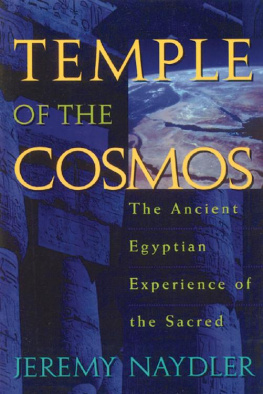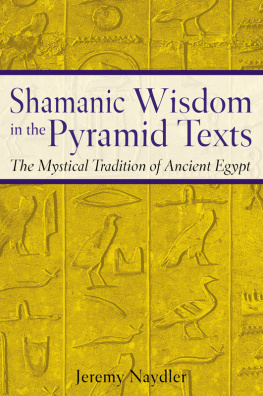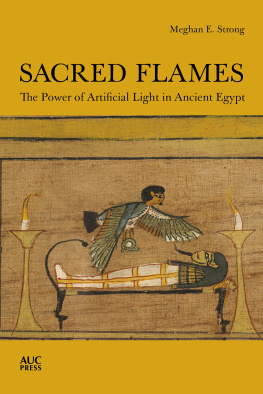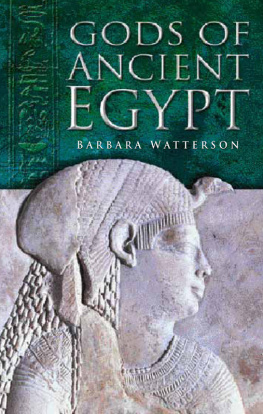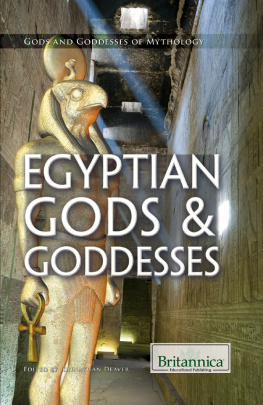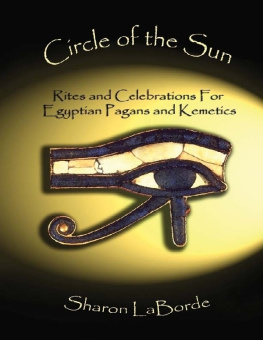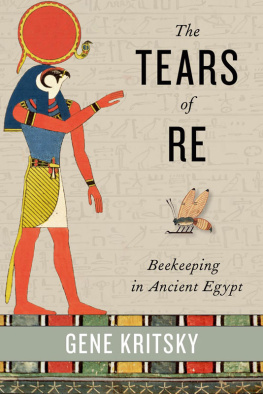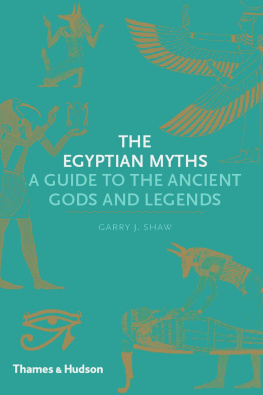
CONTENTS

PREFACE

The title of this book is taken from a passage in the Corpus Hermeticum, a collection of mystical texts attributed to Hermes Trismegistus, the thrice-great Hermes, whom the Egyptians knew as Thoth, the wisest of the gods. He is in dialogue with his pupil Asclepius, describing to him in bold terms the symbolic significance of Egypt in the spiritual history of the world. He says:
Egypt is an image of heaven, or to speak more exactly, in Egypt all the operations of the powers which rule and are active in heaven have been transferred to a lower place. Even more than that, if the whole truth be told, our land is the temple of the entire cosmos.
Trismegistus says these words by way of introducing a prophecy, which falls into two parts. First, he tells Asclepius that a time will come when Egypt, the temple of the cosmos, will be left desolate. Human beings will become weary of life and will cease to regard the universe as worthy of reverence or wonder. Religion will be felt as burdensome, and people will prefer darkness to light. In that time the gods will depart from humankind, and their voices will no longer be heard. The soil will turn barren, the very air will sicken and stagnate, and in this way old age will come upon the world.
Thus far the prophecy, although ostensibly to do with the fate of Egypt, clearly embraces a larger historical process than simply that of ancient Egyptian civilization. It is a historical process that we can recognize as extending into our own time; indeed, it seems to be describing the destiny of Western civilization. Perhaps his words imply that we make a mistake in regarding Egypt as belonging to an epoch essentially different from our own. As we struggle with a sense of weariness in a godless and polluted world, we might feel inclined to acknowledge that the first part of the prophecy has now been fulfilled: Egypt has been desolated.
But then comes the second part. When all this has come to pass, says Trismegistus, through Gods grace there will be a renewal of human consciousness of the sacred. Wonder and reverence will once again fill human hearts. There will be a general reawakening to the divine, which will cause human beings once more to sing unceasing hymns of praise and blessing. This will amount to a new birth of the cosmos, a holy and awe-striking restoration of all nature. All of this is stated still within the framework of a prophecy about Egypt, but it has become apparent that the fate of Egypt incorporates at the same time the fate not only of Western civilization (from which no part of the modern world has remained immune), but also of all nature.
We are presented here with the idea of a vast cosmic cycle, within which Egypt has a special symbolic importance, but which also includes our own time in a particularly significant way. For we live today at that juncture when the first stage of the cyclethe desolation of the templehas been virtually accomplished, but the second stagethe restoration of the templeis only just beginning. In the terms of the prophecy, Egypt in some respect represents all of humanity and all of nature. In the civilization and spiritual life of ancient Egypt, something was brought to expression that stood for us all at a particular moment in our evolution. Ancient Egypt crystallized in itself a peak of human spiritual attainment and relatedness to nature that has become part of our cultural biography.
Today, we are all brought up to believe that our own era began with the Greeks on the one hand, and the Israelites on the other. The Greeks gave us science and reason; the Israelites gave us monotheism. Thus the soul of the West was forged by means of a heroic antipathy toward a previous epoch of irrational superstition and rampant paganism. This is, however, a picture of our cultural identity that carries less and less conviction with the passage of time.
The Greeks did not so much inaugurate a new epoch of science and rationalism as let slip from their grasp an older dispensation. It was a dispensation of which the Egyptians were the chief guardians in the ancient world, and according to which knowledge of the spiritual powers that pervade the cosmos was assiduously cultivated. As the Greeks slackened their grip upon this older, more attuned mode of consciousness, they had increasingly to orient themselves by reference to the narrower human faculties of logic and sense perception. Similarly, the Israelites did not found their monotheistic religion in a spiritual vacuum, but in the teeth of the ancient polytheistic consensus. From the polytheistic point of view, the religion of the Israelites was an incomprehensible minimalism that even the Israelite people could scarcely understand, and that they only came to accept through a painful, often violent, process of readjustment.
The traditional biography of the Western mind that sees our roots in Greece and Israel does not give us the complete picture. The complete picture must include the world that the Greeks and the Israelites turned away from. The soul of the West is older and wiser than we have been given to believe. In the effort today to reclaim the depth-dimension of the soul, it is necessary, therefore, that we shift our perspective to the blazing culture that lies the other side of the Judeo-Greek horizon. In so doing, not only do we begin to recover a sense of our larger identity, but we also gain a more accurate perspective on the developmental path that we have slowly but inexorably taken since those times.
Egypt calls to us like a lost part of ourselves. As we strive to achieve a new sensitivity toward the spiritual powers that pervade our lives, Egypt comes increasingly into focus for us. We find that there is a new and lively dialogue between the unfolding spirituality of modern times and that of the ancient, pre-Greek and pre-Judaic world. Perhaps we recognize that we are beginning to enter, in our modern way, areas of experience with which the Greeks and Israelites felt uneasy, but with which the Egyptians were entirely familiar. For this reason, it is of inestimable value to pursue this dialogue with the ancient Egyptians. For although their era has now passed, they can nevertheless become our companions and guides as we venture toward our own future.
This is not to advocate some New Age revamp of ancient Egyptian religion. Our modern consciousness is not the same as the ancient consciousness. It has been through a long developmental process that we should honour. Simply to embrace ancient Egyptian spirituality today would be to deny the very meaning implicit in the extraordinary historical process that is the cultural biography of the West. The importance of ancient Egypt today lies in its being a reminder that our modern culture has deeper roots than we may have suspected, deeper not only historically but also spiritually. In tapping these roots we go to a profound source of inspiration and guidance. But at the same time we should recognize that the restored temple will not have the same form as the temple that was desolated. There should be no question, therefore, of our going back to Egypt. We have the opportunity today of entering into dialogue with the Egyptian experience, and hence with our own spiritual foundations. Recognizing these foundations, the real challenge is to build toward the future.
This book has owed much to many different people, and it would be impossible to mention them all by name. But grateful thanks are especially due to the following, without whose help and encouragement the book may never have come to the light of day. To Sam Betts and Alison Roberts for reading through early chapters and offering much useful advice and feedback; to Vicky Yakehpar for essential aid with typing; to Barry Cottrell for many perspicacious comments on the completed manuscript and for the beautifully rendered line drawings done specially for this book. I have been most fortunate in having such a sensitive and painstaking editor as Cannon Labrie at Inner Traditions, to whom I am gratefully indebted. Finally, I would like to thank my friends Louanne Richards and Ajit Lalvani for being willing to listen to crucial sections of the book and for their unflagging support.
Next page
